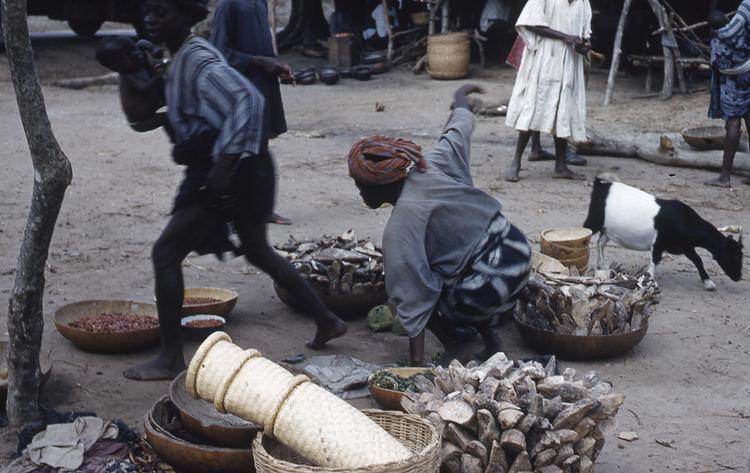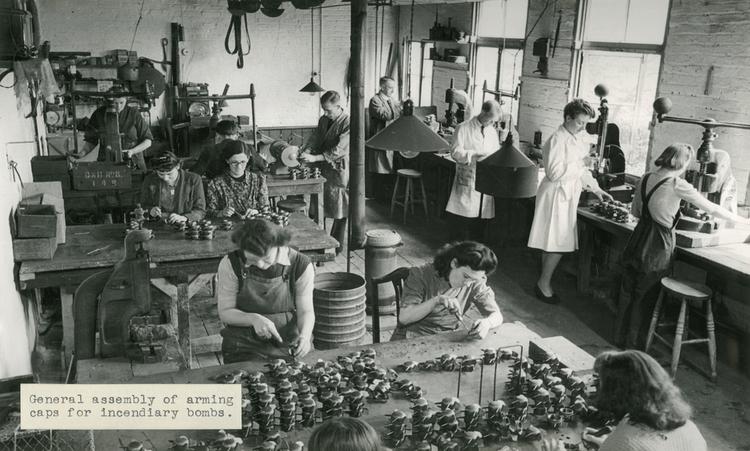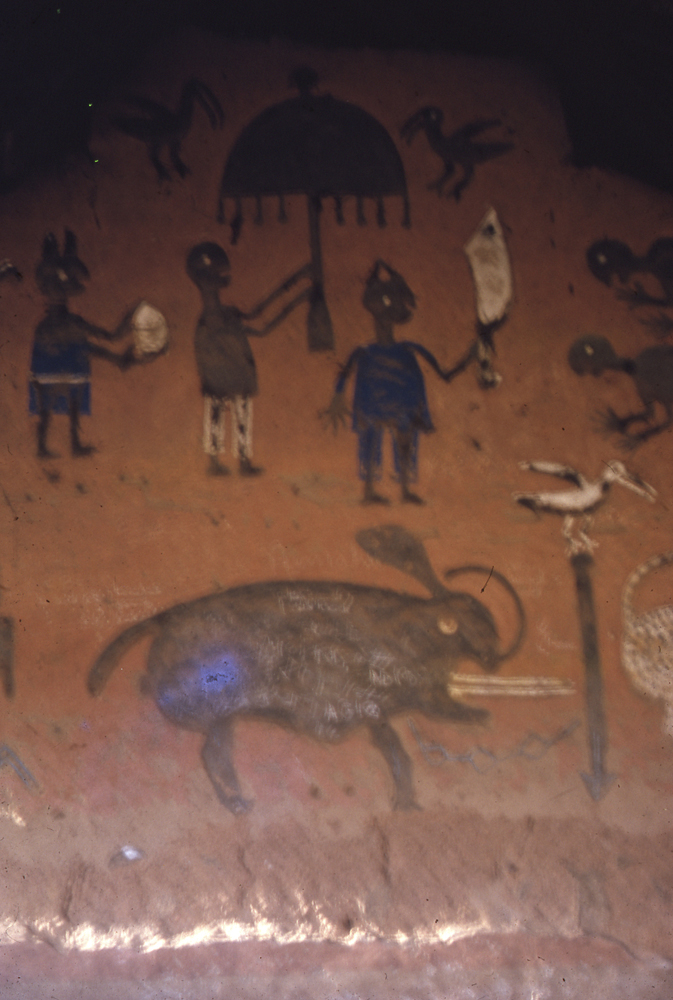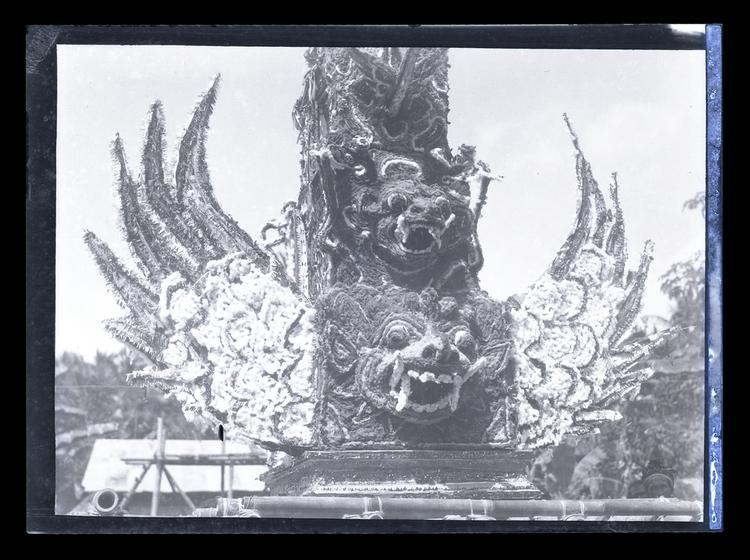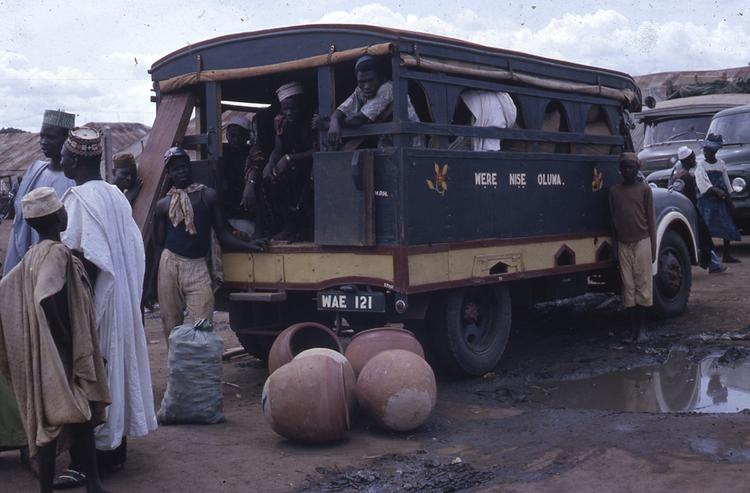
Community Comment: This photograph of a lorry carrying a cargo of pottery wares and some passengers was taken at a lorry park in Ilorin.
Ilorin is an important centre of pottery craft; it has one of the largest traditional pottery workshops in Nigeria. There are various pottery sites, called Eebu, around the metropolis of Ilorin. The major pottery site is in Okelele, Dada, and Adeta areas of Ilorin metropolis. The major pottery ware market is in Idi-ape; the lorry park where this photograph was taken was probably close to Idi-ape market.
Various forms and styles of pottery are produced in the various pottery sites around Ilorin metropolis, these products are categorized by the potters into red and black ware. Here by the door of the lorry, about to be loaded are red decorated water coolers called aamu. Other types of Pottery made in Ilorin include open mouth bowls (ape), soup bowls (isaasun), fryers (agbada), pitchers (oru), and pottery money saving boxes (kolo).
Pottery making is a women’s industry and its products began to reach their widest market only in the twentieth century. Women potters are often independent producers, although they collaborate for the purpose of firing.
In the 1960s the lorry in this photograph became a popular mode of transportation across Nigeria. It is known across West Africa as mammy wagon, among the Yorubas it is popularly called Bolekaja which literally means, disembark, let’s have a brawl.
Bolekajas charge fairly cheap rate compared to other means of transportation and they became the most convenient vehicle for transporting wares to and from markets.
These lorries are locally constructed from wood and taupelin The roof is made of plywood and is covered over with tarpaulin while Constructed from disparate motor parts which do not exactly fit into eachother and are thus always breaking down. The chasis are often junk yard recoveries and may have already being worn over previous usage. They were often made from Bedford lorry heads and the passenger compartments are constructed with woods, and the seats are made in the form of benches.
Different names given by the lorry owner are often written on the side of the lorry – in many cases the name alludes to the peculiar unpredictability of the lorry and the driver; some of these names are: ‘slow and steady,’ ‘no condition is permanent,’ ‘trust in God,’ ‘no hurry in life,’ ‘Man proposes, God disposes,’ ‘No telephone to Heaven,’ ‘No money, no friend.’ A Yoruba phrase, “Were nise Oluwa,” that literally means, ease is the lord’s work is written on the body of the lorry in the photograph.
Several reasons explain the motive behind the name ‘bolekaja,’ the Yoruba name for the lorry: one is the frequent altercations that often occur between passengers who sit facing each other closely; another is the altercation that arises between passenger and driver/conductor when the lorry breaks down mid journey and the conductor/driver who often know how to repair automobiles tries to fix the lorry while the passengers are kept waiting. And if it happens that a passenger tries to find another means of transportation, the drivers / conductors are often reluctant to refund the fare.



